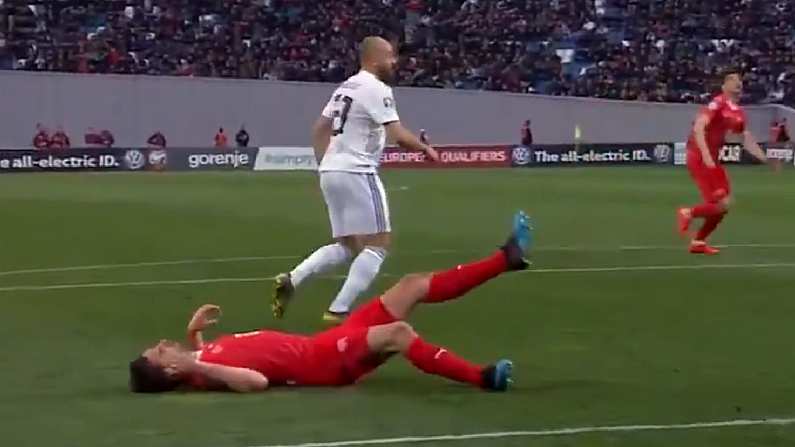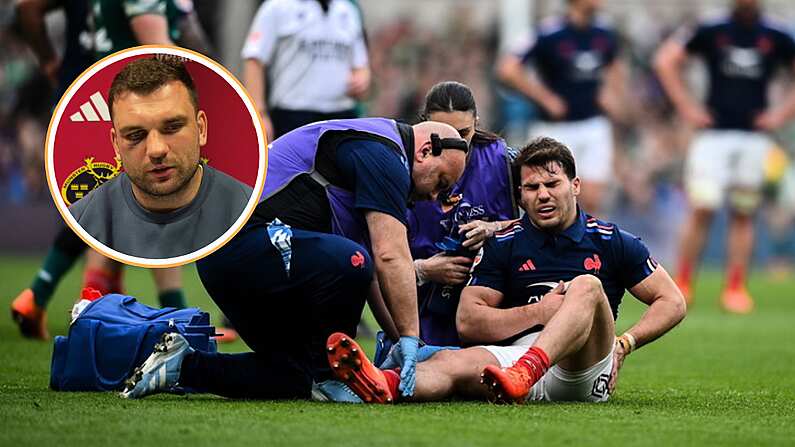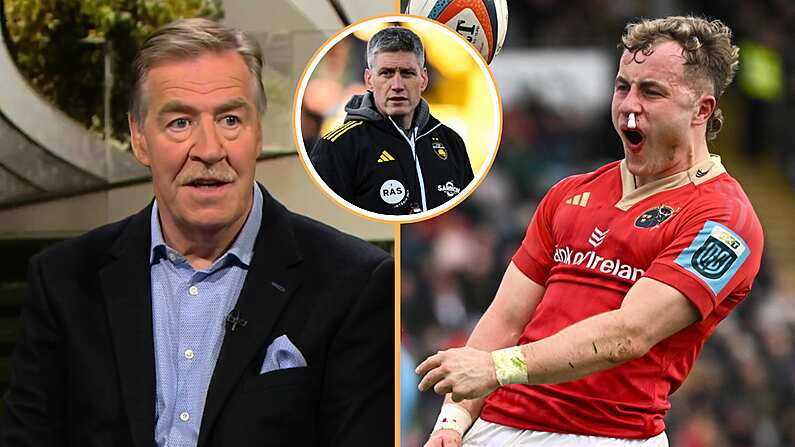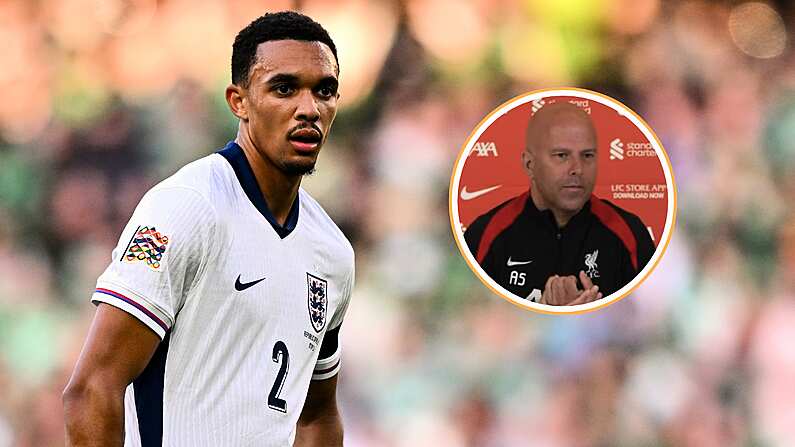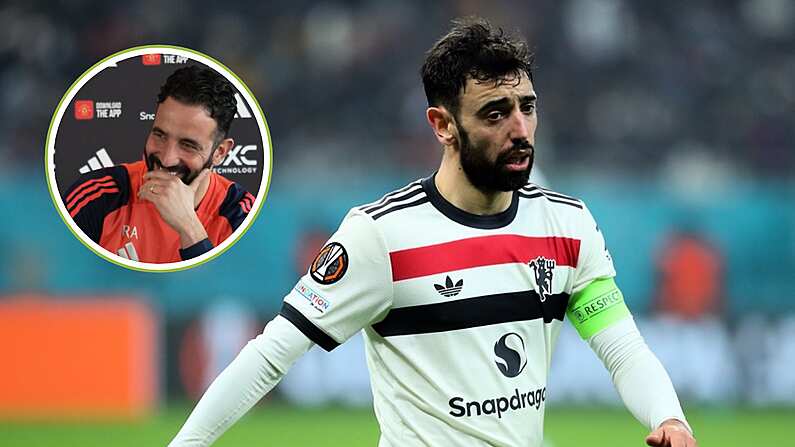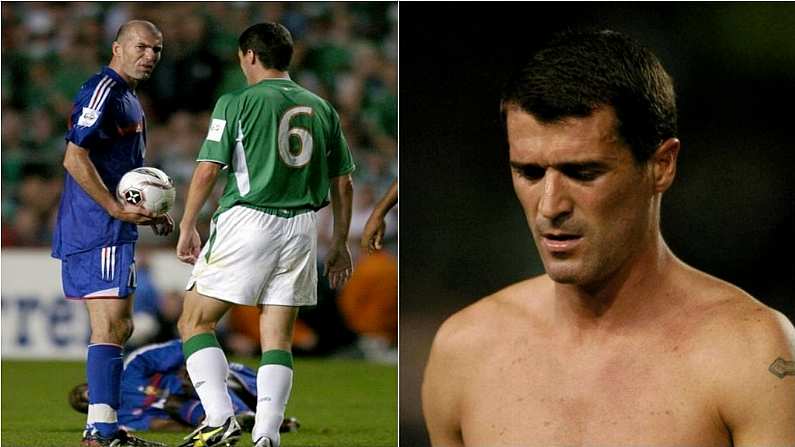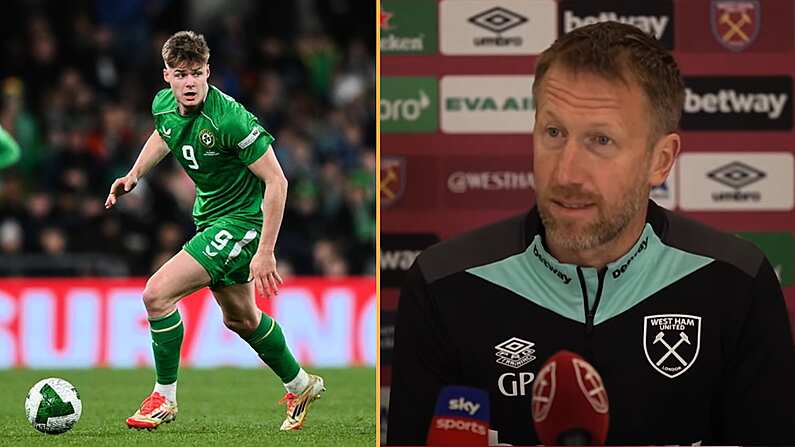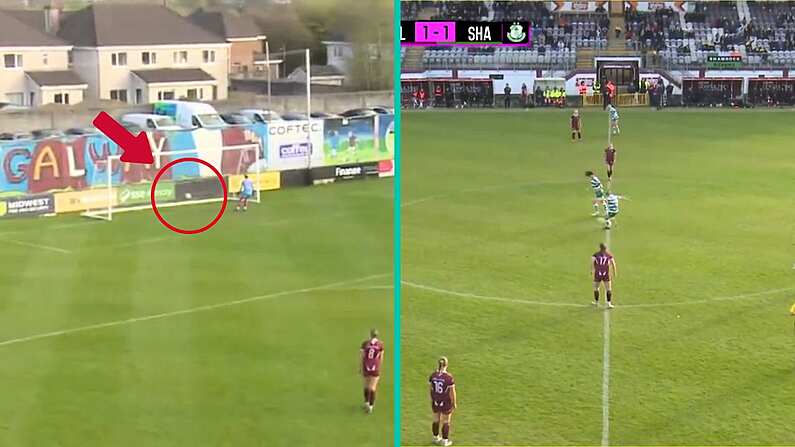Living in the age of sue and counter sue, it's simply breathtaking that soccer still lags behind when it comes to having definitive rules surrounding head injury assessment.
Saturday saw a particularly nasty incident during the match between Ireland's group rivals Switzerland and Georgia in Tblisi, when Newcastle centre-half and Swiss stalwart Fabian Schar hit the deck - and hit the deck hard!
.@NUFC's Fabian Schär is involved in a nasty clash of heads early on for Switzerland! 🤕💥
The defender returned to the field shortly after, looking slightly dazed... pic.twitter.com/jDNdJtXpd9— Sky Sports Football (@SkyFootball) March 23, 2019
Having gone up to try to contest an attacking corner, the defender had a nasty clash of heads with Georgian full-back Jemal Tabidze. By the time he had come back to Earth, Schar was out-cold and had it not been for the quick thinking of opposition player Jano Ananidze, things may have worked out a whole lot worse for the St. James's Park favourite.
In fact, it came as a bit of a surprise to everyone watching that Schar was able to continue. Too much of a surprise for some, and today the issue of head injuries in the sport was placed firmly in the spotlight.
The incident prompted the chairman of head-injury charity Headway to have his say.
Peter McCabe asked, "What is it going to take to make football take concussion seriously?"
It's a fair question, especially given how the world's most widely consumed team sport lags so far behind the likes of American Football and Rugby in its approach to head injury protocol.
In a statement, the Swiss FA was adamant that Damien Meli, the national team doctor followed all the necessary steps set out in the latest sports concussion assessment tool - SCAT5 to the kids.
Despite being fairly similar in content, SCAT5 directions differ in one major way to the HIA (Head Injury Assessment) guidelines that all who follow rugby would have come quite accustomed to over recent seasons.
You see, with the HIA, players even suspected of suffering a head injury during a match are forced to undergo a mandatory ten-minute screening process before they can be eligible to return to action. In the meantime, a temporary substitution can be made to ensure his or her team aren't numerically disadvantaged in the meantime. Should the player be deemed well enough to continue, they can retake the field after the ten minutes is up.
But only after the ten minutes is up.
The introduction of such a regulation would surely serve to cool the flames that have been gathering at the footballing authorities feet with regards to this. It allows medical personnel a far fairer amount of time to carry out a professional examination, without the undue stress of watching millions. It makes everyone involved feel better and - bottom line - it could potentially save lives.
So, over to you FIFA!

